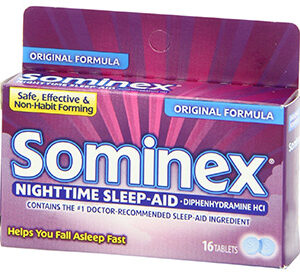Phenergan Overview
Phenergan, known by the generic name promethazine, is a medication primarily utilized in the treatment of various forms of allergy symptoms, including itchiness, runny nose, sneezing, itchy or watery eyes, hives, and itchy skin rashes. Additionally, it serves to counteract nausea and vomiting, aid in inducing sleep, and helps with motion sickness.
Indications
This medication is indicated for use in individuals who are experiencing forms of allergic reactions, requiring sedation, treatment for motion sickness, and nausea or vomiting prevention. Moreover, Phenergan’s applications extend to preoperative sedation, anesthesia adjunct, and as a therapeutic agent for allergic conditions.
Dosage Administration
Dosages of Phenergan must be tailored to the individual’s needs and the condition being treated. It is essential to follow a healthcare provider’s instructions for dosage amounts and frequency. This medicine can be administered orally in tablet or syrup form, rectally via suppository, or via intravenous or intramuscular injection.
Contraindications
Not all individuals should use Phenergan—specific contraindications include patients with hypersensitivity to promethazine or other phenothiazines, comatose states, and in children younger than two years old due to the risk of respiratory depression.
Precautions
Exercise caution in patients with certain medical conditions such as sleep apnea, asthma, or other respiratory impairments, compromised liver function, a history of seizures, or if you have been recently administered monoamine oxidase inhibitors (MAOIs).
Adverse Reactions
Adverse effects of Phenergan may encompass drowsiness, dizziness, fatigue, increased susceptibility to sunburn (photosensitivity), dry mouth, blurred vision, or difficulty urinating. Less common but more serious reactions can include respiratory depression, seizures, and severe allergic reactions.
Drug Interactions
Phenergan interact with numerous medications, potentially altering their effects. Cautious use or avoidance is advised with alcohol, sedatives, narcotics, tranquilizers, MAOIs, and certain antidepressants. Always inform your healthcare provider of all medications you are taking.
Pregnancy Considerations
During pregnancy, Phenergan should be used only if clearly needed. Potential risks must be weighed against benefits. Regarding lactation, Phenergan may inhibit lactation and it can be excreted into breast milk, potentially affecting the infant. Consult a doctor to discuss breastfeeding while on this medication.
Overdosage Management
Symptoms of Phenergan overdose might include severe drowsiness, unconsciousness, respiratory depression, or seizures. Overdose treatment encompasses immediate medical attention, with potential interventions including supportive measures such as maintaining airway patency and administering activated charcoal to minimize absorption.
Clinical Pharmacology
Phenergan operates as an antihistamine, reducing the effects of naturally occurring histamine in the body. Furthermore, it exhibits anticholinergic, sedative, antiemetic, and anesthetic effects. Its use in preoperative settings is to alleviate apprehension and induce a quiet sleep.
Mechanism of Action
The primary mechanism through which Phenergan exerts its effects is by blocking histamine H1 receptors, thus inhibiting histamine-mediated symptoms. Additional actions include effects on other neurotransmitter systems that contribute to its diverse therapeutic uses.
Pharmacokinetics
After administration, Phenergan is extensively metabolized in the liver and it’s elimination follows a half-life typically ranging from 10 to 19 hours. Metabolites are excreted primarily in the urine, with small amounts also excreted in feces.
Storage Instructions
It is pivotal to store Phenergan away from sunlight and moisture at room temperature. Keep medication in its original packaging until use to maintain its effectiveness, and ensure it is out of reach of children.
Patient Counseling
Patients using Phenergan should heed advice regarding the possible impairment of mental and physical abilities required for performing tasks such as driving a car or operating machinery. One must remain vigilant about avoiding concurrent use with alcohol or other CNS depressants.
Medication Guide
With the medication guide, it’s beneficial for the patient to familiarize themselves with pertinent usage instructions, potential side effects, and the importance of adhering to the prescribed dosage. If questions or concerns arise, seeking medical counsel is advised.
FAQs
Everyday queries may cover Phenergan’s general safety profile, the likelihood of adverse effects, how soon one can expect relief from symptoms, what to do in case a dose is missed, and the correct discontinuation process. A thorough understanding of the medication can help ensure optimal results and minimize risks.



Phoenix (verified owner) –
Reliable meds, reasonable delivery time.